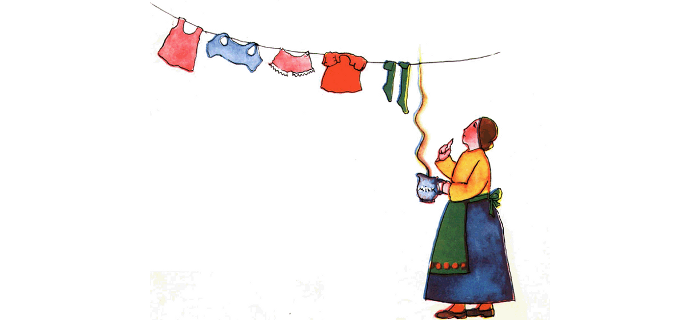Gracias, Amigo

Thank you."
For many of us, it is an autonomic response, like breathing or blinking. "Thank you" is a reflex action--a phrase we spurt out at the end of a conversation, mostly to signal its end.
I thank people for calling, for writing, for bagging my groceries, for stopping me on the street to pet my dog. If you are like me, you catch yourself uttering the phrase at least a dozen times each day, but have you ever really stopped to think about what it means?
Thank you, friend
In Mexico, the saying is "Gracias, Amigo." During a recent month-long trip to Mazatlan, that autonomic response thing of mine was going strong. In fact, "Gracias, Amigo" is the single Spanish phrase I mastered during my month-long visit. This was more because of my limited bilingual abilities than because I really meant to thank anyone. But, when you discover what the phrase really means, "thank you" becomes a wonderfully appropriate response when you find yourself speechless.
During that spring month of sunsets and sailboats, I would say "Gracias, Amigo" to the green parrots who peered from the resort's lush greenery and mimicked whatever I said; "Gracias, Amiga" to the round-faced girl who dodged heavy-footed tourists to sell me spearmint chewing gum; and "Gracias, Amigo" to the Pulmonia driver, though he careened around strolling pedestrians and through clogged intersections at a breakneck, maniacal speed.
I soon learned that a "Gracias, Amigo" and a genuine smile can get you anything--or get you help with anything--in this foreign land. It became my favorite expression, mostly because the origin, the true meaning of "thank you," is more obvious in its Spanish translation.
"Gracias." It's all about grace. It means: I don't deserve this, but you did it for me anyway. I don't deserve your help finding my way around in a foreign country, but you helped me anyway. I don't deserve the time you spend bagging my groceries--I've done nothing for you--but you bagged my groceries anyway.
And the "Amigo" part is important, too. I smile on a culture in which everyone from uniformed schoolgirls to straw hat vendors calls you (who is, of course, really a stranger rattling about in their country) a friend.
This is their autonomic response, it seems. I couldn't always tell what they were asking me, but I always picked up the "Amiga" at the end.
What a terrific etymological partner for "Gracias." After all, sometimes we don't deserve our friends, but a good many of them stick around anyway.
Saying thank you to those we often forget to thank
My husband and I say "thank you" a lot, and I don't ever want to let that go. Because "thank you" means I don't deserve you, but you're here anyway. I don't deserve your willingness to deal with my smelly socks, my chocolate cravings, or my coffee pot paranoia (did I unplug that thing or not?) but you're willing to deal with them anyway.
The urge to say gracias--thank you--is a natural outgrowth of what that syrupy sentimental part of me calls true love, the kind of love in which each partner encourages the other to do and to be everything they want to do and to be.This kind of love has nothing to do with levying expectations for this partner to do something they wouldn't choose to do on their own. It is reserved for the mature, the wise, and the secure because it involves no demands, no obligations, no expectations, no ultimatums.
Naturally, this is not a new concept. More than one psychotherapist has molded a multi-million dollar deal out of the idea. Best-selling books, such as Scott Peck's "The Road Less Traveled," and Wayne Dyer's "Your Erroneous Zones," are just a couple of examples. Not to mention that old book called The Bible, probably responsible for starting it all.
So, the idea is not new, but it wields enormous power. Try it and see. Say "thank you" to someone, especially those in your family and especially your spouse. Not because they took out the garbage or cleaned the litter box or fixed your carburetor. But because they didn't have to.
Susie Michelle Cortright is the author of several books for women and founder of the award-winning Momscape.com, a website designed to help busy women find balance. Visit http://www.momscape.com today and get Susie's *free* course-by-email "6 Days to Less Stress."
